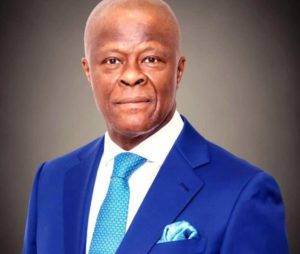On Tuesday, Mr Wale Edun the Minister of finance says the Federal Government had reactivate the reinstatement of its social investment programme, aiming to provide direct financial support to 75 million Nigerians across 50 million households. The move, part of the administration’s broader strategy to alleviate economic hardship, particularly targets vulnerable groups suffering under current economic conditions.
The overhaul of the programme follows allegations of widespread fraud within the National Social Investment Programme Agency (NSIPA). Minister of Finance and Coordinating Minister of the Economy, Mr Wale Edun, revealed these updates during a ministerial sectoral briefing marking President Bola Tinubu’s first year in office. This initiative aims to rebuild trust and ensure that aid reaches those most in need.
Background and Suspension of Social Programmes
In January, President Tinubu suspended all social investment programmes administered by NSIPA for six weeks, citing a probe into alleged malfeasance. This suspension included programmes such as N-Power, the conditional cash transfer scheme, the government enterprise and empowerment programme, and the home-grown school feeding initiative. Alongside this, Betta Edu, the Minister of Humanitarian Affairs and Poverty Alleviation, was also suspended.
Responding to calls from the House of Representatives, which urged the government to resume these initiatives, President Tinubu established a Special Presidential Panel led by Mr Wale Edun. The panel’s mandate was to conduct a thorough review and audit of the financial frameworks and policies governing the social investment programmes.
Economic Context and Inflation Challenges
Nigeria’s economic landscape has been marked by significant challenges, including a 33.69% inflation rate as reported by the National Bureau of Statistics in April. Food inflation, which stood at 40.53%, has particularly strained household budgets. These economic pressures have been exacerbated by the removal of petrol subsidies, a policy shift that has led to increased costs for goods and services.
To mitigate these impacts, the government has introduced several measures aimed at providing relief to citizens. These include improved access to credit, with N1 billion allocated to consumer credit and grants of 50,000 Naira to support 1 million nano industries. Additionally, there are efforts to attract investment through incentives in various sectors, including a focus on transitioning to Compressed Natural Gas (CNG) and solar-based energy solutions.
Macroeconomic Reforms and Debt Management by Mr Wale Edun
Mr Wale Edun highlighted that the reinstatement of the social investment programme is part of a broader set of macroeconomic reforms aimed at stabilizing the Nigerian economy. These reforms include subsidy removals and foreign exchange market adjustments. Despite the initial economic shock, these policies are designed to foster long-term growth and stability.
Mr Wale Edun reassured that Nigeria now has sufficient resources to meet its domestic and international debt obligations without strain. He credited the increase in revenue and improved fiscal management for this development. The government’s efforts have also led to an improved international credit rating, with agencies like Moody’s and Fitch upgrading Nigeria’s ratings to positive. This renewed financial stability has allowed the government to service debts and regain confidence on the global stage.
Infrastructure Development and Future Prospects
Infrastructure development remains a cornerstone of the government’s economic strategy.Mr Wale Edun emphasized the importance of infrastructure in driving economic growth, creating jobs, and generating multiplier effects across various sectors. A dedicated fund has been established to support housing construction and provide low-interest mortgages to average Nigerians, aiming to address housing deficits and stimulate economic activity.
The minister also addressed concerns regarding the exodus of companies from Nigeria, attributing these departures to pre-existing conditions rather than current policies. He stressed that the government is committed to improving the business environment to retain and attract investments. Initiatives such as producing mass transit vehicles that are more cost-effective to operate demonstrate the government’s focus on practical solutions to economic challenges.
The reinstated social investment programme and ongoing macroeconomic reforms reflect the government’s commitment to addressing immediate economic hardships while laying the groundwork for sustainable growth. Through strategic interventions and robust fiscal management, the administration aims to create a stable and prosperous future for all Nigerians.
Table of Contents
Discover more from OGM News NG
Subscribe to get the latest posts sent to your email.














